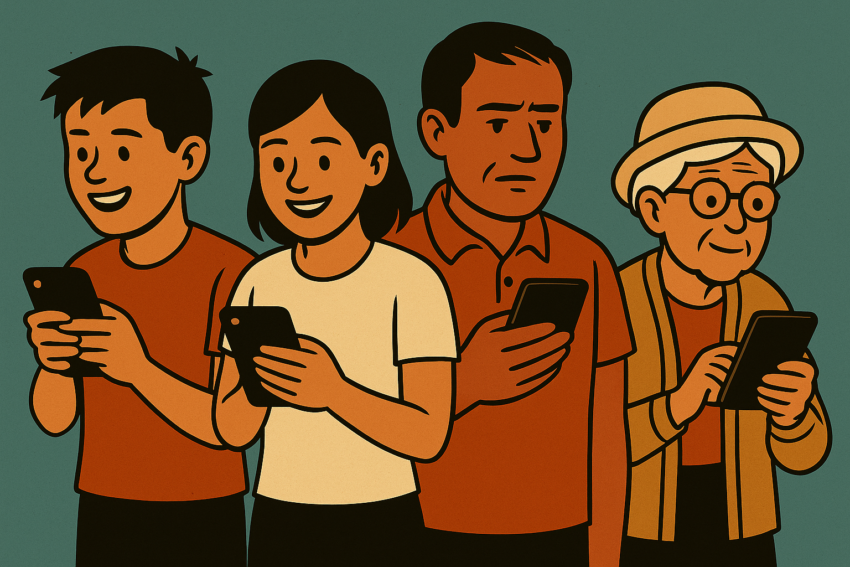When people talk about social media addiction, the spotlight usually lands on Gen Z. They grew up with TikTok, Snapchat, and Instagram at their fingertips, so it feels easy to assume they are the most hooked. But the truth is more complicated. Social media addiction by generation is not limited to teenagers scrolling late at night. Boomers, Gen X, Millennials, and Gen Z all have their own struggles with online habits, and the ways they use technology reveal a lot about their lives, values, and vulnerabilities.
Boomers: Connection and Curiosity
Baby Boomers were not raised on screens, but they embraced social media as a way to stay connected. For many, Facebook became a digital town square where they could share family photos, check in on friends, and follow community news. While Boomers are less likely to spend endless hours scrolling, their addiction shows up differently. Many rely heavily on Facebook for social contact, making it a daily ritual. Some even find themselves vulnerable to misinformation because of how much trust they put into their feeds. Their attachment is less about chasing likes and more about seeking connection in a digital world.
Gen X: The Quiet Middle
Often overlooked in conversations about technology, Gen X sits between Boomers and Millennials. They use platforms like Facebook, LinkedIn, and increasingly Instagram, but they tend to consume more than they create. Their social media addiction is subtle. It shows up in long stretches of scrolling news or watching videos instead of engaging. Gen Xers often balance demanding careers and family responsibilities, so their online habits become a form of escape. While they may not admit it, many check their phones dozens of times a day, searching for a quick hit of distraction.
Millennials: Curators of the Digital Self
No generation mastered the art of curating an online identity quite like Millennials. They came of age alongside MySpace, Facebook, and later Instagram. For many, social media is not just about staying connected but about projecting a carefully crafted version of their lives. Their addiction often ties to validation, with likes and comments serving as a measure of success. Millennials are also the most likely to blur personal and professional boundaries online. They network on LinkedIn, maintain friendships on Instagram, and join communities on Reddit or Discord. Their constant toggling between roles feeds into cycles of both productivity and burnout.
Gen Z: Immersed from Birth
Gen Z has never known a world without social media. Platforms like TikTok, Snapchat, and Instagram dominate their free time, and the algorithm-driven feeds deliver endless content designed to keep them hooked. Their addiction is different from other generations because it often ties directly to self-image and mental health. The pressure to keep up with trends, post the perfect content, and stay visible online creates anxiety and comparison. Many Gen Zers recognize their addiction but also admit they cannot fully step away. For them, social media is not just entertainment. It is the primary way they socialize, learn, and even shop.
The Common Thread
While each generation experiences social media addiction differently, the thread that ties them together is dependence. Boomers may rely on Facebook for connection. Gen X turns to scrolling for distraction. Millennials curate their lives for validation. Gen Z struggles with the pressure of constant visibility. The platforms may vary, but the pull is universal.
The question is not which generation is most addicted to social media. The real question is how all of us can take back control. Whether it is setting limits, curating feeds more thoughtfully, or rediscovering offline joys, breaking the cycle starts with awareness. Social media is powerful, but no one should feel powerless to it.
